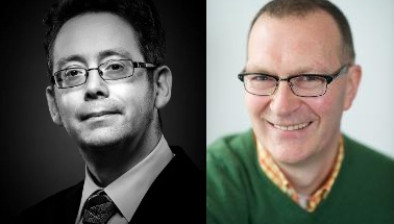Dr Beth Watts-Cobbe: Effective altruism, the civic university and ending homelessness in Glasgow

Dr Beth Watts-Cobbe
UK homelessness expert Dr Beth Watts-Cobbe is a key author in the team that delivers the regular Crisis Homelessness Monitors and has a long-standing interest in effective altruism and its potential regarding policy and practice in the homelessness sector.
The effective altruism movement seeks to harness people’s desire to do good in the world and maximise it, first, by making clear that people’s giving capacity is invariably very much higher than their giving practice and second, by impelling people to give only to causes that are demonstrably effective in terms of lives saved or quality years lived.
Living a good life, from an effective altruist standpoint, is not volunteering at your local food bank or soup kitchen, setting up monthly donations when stopped in the street by a ‘chugger’, giving money or food to someone begging on their local street corner, or working for a charity.
Instead, the better moral choice might be to ‘earn to give’, that is, to go in the highest paying role consistent with one’s skills and qualifications and give as much of those earnings as is compatible with a minimally decent life away to the most effective causes. Effective altruist organisations (for example, GiveWell and Giving What We Can) engage in detailed and ongoing analysis to identify these most effective causes, with the current top-billing charities focusing mainly on preventable child mortality in Africa.
A return to civic institutions?
Closer to home, there has been an increasing interest in rediscovering universities as civic institutions. The core idea is that such universities are embedded in and contribute to the well-being and success of their local places and that their research, teaching and broader engagement work are responsive to and influenced by local needs, wants and context. This is, in part, a reaction to forces that over decades have worked to distance universities from their local communities: the growth of an international student market, an emphasis on large internationally impactful research programmes etc.
The impetus towards the civic university reflects the idea that something has been lost in this manifestation of globalisation and that something can be gained by intentionally turning back to one’s physical place and its people.
One example of the agenda shaping university practice is the University of Glasgow’s Homelessness Initiative (in partnership with the UK Collaborative Centre for Housing Evidence CaCHE), announced as the flagship civic component of the university’s strategy, which aims to bring the resources of the institution to bear to end homelessness in Glasgow.
A scoping study published late last year details several potential routes to do so, including new research designed to understand better, evaluate and improve the operation of the housing system and responses to homelessness in the city; the development of new courses and teaching materials to enhance understandings of homelessness among university and high school students; and staff and student volunteering schemes. This builds off the publication of a debate paper by the Higher Education Policy Institute exploring whether universities can do more to end homelessness (spoiler: the answer is a resounding yes).
What do these movements – in support of effective altruism and the civic role of universities – have in common? Where are the synergies and the common ground? Effective altruism directs our philanthropic efforts only to areas where giving is most cost-effective, and in so doing sets an exceptionally high bar for morally legitimate giving directed to causes in affluent countries (though one effective altruist argues that investing to increase housing supply in the UK might meet this high bar).
So, on first analysis, effective altruism seems at odds with the civic impulse to respond to one’s locale simply because it is one’s locale. The locale is rarely the arena where the classic effective altruist will direct their efforts to do good, aside perhaps from it being a recruiting ground for more effective altruists. I want to make the case that, seen differently, the spirit of effective altruism can and should be a strong ally in guiding universities’ civic agenda generally and guiding the University’s Homelessness Initiative specifically.
Altruism and homelessness
First, there is a clear affinity between effective altruism’s emphasis on verifiable, quantifiable impact and the obvious affinity with the mission of universities as seats of learning, knowledge production and critical reflection. The movement has delightfully nerdy origins in academic philosophy, complemented by a strong commitment to the role of maths and impact measurement in ethical decision-making, and an enthusiasm for self-critique and reflection. It is, of course, not without its detractors
Second, while pure, top-down effective altruism directs attention to the causes which have the most effective solutions globally, an impure, bottom-up form of effective altruism might instead take our charitable behaviour as it currently exists and incrementally try and move it in more effective directions. This is especially imperative in the sphere of homelessness, where good intentions and old habits can lead us astray. The public thinks homelessness is an individual problem resulting from bad choices, not a collective problem rooted in broader socio-economic forces, like poverty and housing market failure. Homelessness is seen as unavoidable, with the public reaching for direct remedial responses like shelters and hot meals. Prevention and housing and welfare system reform are not part of the picture.
In this context, it is no surprise that social entrepreneurs with cultural capital can gain enormous support for exciting new ventures that, in fact, patently fail to address the drivers of homelessness and, at worst direct time, energy, and even resources away from more effective but less photo-worthy responses. Crisp packets ironed into blankets, public buildings opened as make-shift (and inevitably low quality) shelters, mobile laundry facilities, and villages of cute ‘tiny houses’ all distract from the real housing-led, systems-level, preventative responses that hold the key to ending homelessness, as Crisis’ systematic and comprehensive plan to end homelessness makes crystal clear.
To “do good better”
National governments are in a privileged position to pursue legal and policy reforms that achieve systemic change and tackle homelessness upstream. But cities are also potent actors in this area, and universities are key institutions within them. The civic universities agenda, as it applies to homelessness, has the potential to deploy the resources and influence of universities to encourage students, staff and the more expansive city populous to ‘do good better’, not only by helping identify evidence-based interventions that hold particular promise in their specific local context but also by facilitating sensitive conversations about where people’s time and money might best be directed in efforts to help people experiencing homelessness.
This is the allegiance between effective altruism and the civic university that excites me. Can universities be active and brave in harnessing and directing the efforts of all those who work and study in them to end homelessness in their cities? Can universities support students to minimise their risk of homelessness while studying and beyond?
Can universities review their property investment and management practices to minimise the negative impacts universities can have on local housing markets? Can they hold themselves to high standards when evaluating, critiquing, and reflecting on their initiatives as civic institutions seeking to tackle homelessness? Can they call out well-intentioned but ill-conceived efforts initiated by students or local social entrepreneurs and redirect them more effectively? The next few years show us that the answer is yes, in Glasgow and beyond.
- Based at Heriot-Watt University, Beth is a senior research fellow at I-SPHERE. Her research focuses on homelessness, youth homelessness, rough sleeping and complex needs, social housing, and poverty.







